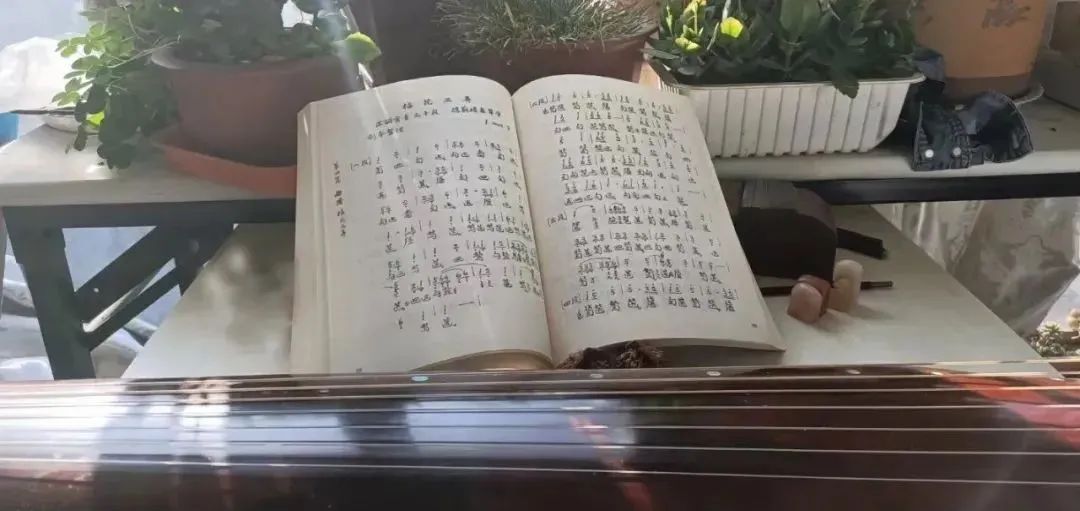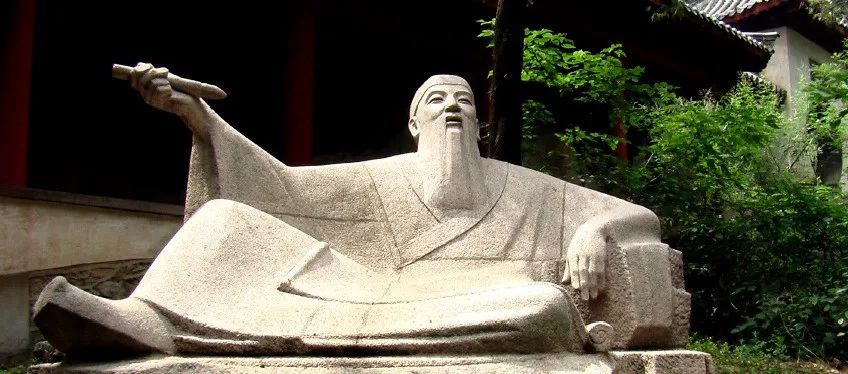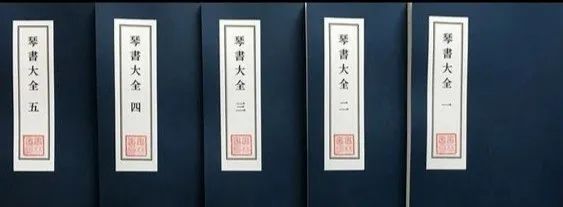Xuzhou Yayin in the history of Guqin has a long lasting rhyme of two thousand years
The recently popular TV series "Meng Hualu"
Push the guqin into people's field of vision again
Guqin ranks first in the four arts of "qin, chess, calligraphy and painting".
It is the study music of ancient literati.
Nowadays, the boom of traditional culture continues to heat up,
Guqin is favored by more and more people.
In fact, Guqin was a fashion in Xuzhou during the Han Dynasty.
Guqin with Chu Feng and Han Yun
Two thousand years later, it became popular again in Xuzhou,
Bring poetic life and inner peace to modern people.
Two court qin songs, the temperament of two emperors
In March 2014, the Peizhu made by Hao Jingchun from Peixian County was presented to Belgium as a national gift, making Xuzhou people proud. Guqin has a longer history than Peizhu, and can be traced back to the ancient Fuxi era. "Qin" is what people call guqin today, and "guqin" is a term that only existed at the beginning of the last century. Shi Zaiqin was popular in the Spring and Autumn Period.

"When the wind blows, the clouds fly, the Weijia sea returns to the hometown, and the warriors guard the Quartet." 2000 years ago, when Liu Bang, the founding emperor of the Han Dynasty, returned to his hometown of Peidi after quelling the rebellion, he danced and sang "The Song of the Great Wind", emotionally, " Generous sadness, weeping for a few lines." Liu Bang's "Song of the Great Wind" improvised and expressed his feelings was later compiled by court musicians as a qin song, that is, the accompaniment of the guqin, which was recorded in the history of Chinese music.
In the early Han Dynasty, people's livelihood was closely related, and the economy and culture were prosperous, and many musical talents emerged. "Jiangsu Yiwenzhi·Xuzhou Volume" records, "Shizhong, a native of Xiapi in the East China Sea in the Western Han Dynasty, is rumored to be the queen of Shikuang, who is good at drums and qin." Shizhong has 8 chapters of "Yaqin Masters", although this book is scattered and missing, However, it is the first monograph on piano scores in my country that was first recorded in the historical records.
"There is a beautiful woman in the north, peerless and independent, who cares about the city, and then the country." Emperor Wu of the Han Dynasty sang the beautiful lady, Mrs. Li, and loved him. According to the "Han Book", after Mrs. Li died of illness, Emperor Wu did not think about eating and drinking, and called the alchemist's palace to conjure his soul. In the shadow of the shaking candle, Mrs. Li came to her and left slowly. Emperor Wu felt a sense of grief, so he wrote a poem and said: "Yes, no? Why is it so late?"

The charm of music is captivating. Due to the influence of the teachers, the qin became very popular in Xiapi. Liu Xiang, who was separated from his teacher for a hundred years, recorded in "Bie Lu" that "there are still many good qin in Pi folks, so it is also in China".
Inheriting the Chinese culture Liu Xiang compiled ancient books and also discussed the qin
The Chinese civilization has lasted for 5,000 years, and it is inseparable from the inheritance of words. In Xuzhou during the Han Dynasty, Liu Xiang, the fourth grandson of Liu Jiao, the king of the Yuan Dynasty of Chu, and his son Liu Xin also made outstanding contributions to the classics.
The Han Dynasty is considered by academic circles to be the first cultural peak in Xuzhou's history. Jiang Qingbo, editor-in-chief of "Jiangsu Wenku·Historical Materials Editor" and professor of Nanjing Normal University, praised Liu Xiang, Liu Xin and their sons from Xuzhou in the Han Dynasty: "The achievements in the construction of ancient bibliography in my country are worthy of attention, and under their influence, the feudal dynasties of all dynasties have paid special attention to books. This has played a crucial role in the inheritance of Chinese culture." Tian Binge, a scholar of literature and history in Xuzhou, said that Liu Xiang and Liu Xin and their son "arrange books for the world, and disclose the 'reading catalog', which is China's 'library science'. 'The founder.

In Xuzhou in the Han Dynasty, Zhang Daoling from Fengyi, who was born a hundred years later than Liu Xiang, was also a famous qin master. Zhang Daoling took Lao Tzu as the leader and founded Taoism with the "Tao Te Ching" as the classic, and was revered as Zhang Tianshi. According to the "History of the Qin", Zhang Daoling "has a great interest in the history of ancient books, and is especially fond of playing the qin.
Su Shi's rhyme in Sishui, Jiang Keqian's four generations of qin books
The sound quality of the guqin is clear, harmonious, light and elegant, which should be in line with the literati's transcendental attitude towards life. Su Shi, a parental official and writer who was highly respected by Xuzhou people during the Northern Song Dynasty, was not only good at poetry, painting and calligraphy, but also excelled in qin learning.
"Qin Jing·Da Ya Siyin" records: "The ancients mostly used the qin for their family, and the most author is Meishan Sansu (Su Xun, Su Shi, Su Zhe)." Su Shi, who has been fascinated by his ears and eyes, has a profound understanding of guqin and qin music. power and discernment.

In the first month of the second year of Song Yuanfeng (1079), Su Shi and his son Su Mai, who were exiled from Xuzhou, traveled to the banks of Sishui River in the spring and came to the tomb of Huanji on Huanshan (which was later confirmed to be a tomb of the Han Dynasty). Huan Yu was a doctor in the Song Dynasty during the Spring and Autumn Period, and he had intended to harm Confucius. Su Shi not only "made the Taoist priest wear Rixiang to play Lei's qin and play the legacy of Lushuang" in Huanyu's tomb, but also issued the philosophical thoughts of "Sima's evil is not to grind with stone", "Sima's possession, and water are all gone".

After the birth of the qin, before there was no scientific notation method, it all relied on written descriptions and generations of qin people to learn from each other. It was not until Cao Rou in the Tang Dynasty invented the reduced-character notation that the ancient qin music was widely recorded. The "Qin Shu Daquan" compiled by Jiang Keqian, a native of Xuzhou in the Ming Dynasty, is the most classic qin study literature in this period, and it is also a book with the largest number of guqin songs in China so far.
Jiang Keqian's ancestral home was in Xuzhou, Zhili. He compiled the literature on qin studies from ancient classics. After compiling, he failed to print it and passed it on to his son, who then passed it on to his son. During the Wanli period of the Ming Dynasty, Jiang Keqian took over the heavy task of revising books from his father, and invited domestic qin masters to reference and order old manuscripts by mutual reference, classify them into categories, and compile the "Qin Shu Daquan" in three years. This 22-volume masterpiece, which embodies the efforts of four generations of the Jiang family, contains a large number of qin study monographs, qin things, qin songs, poems, and qin scores that have never been seen in other books. It can be called an encyclopedia of qin studies.
